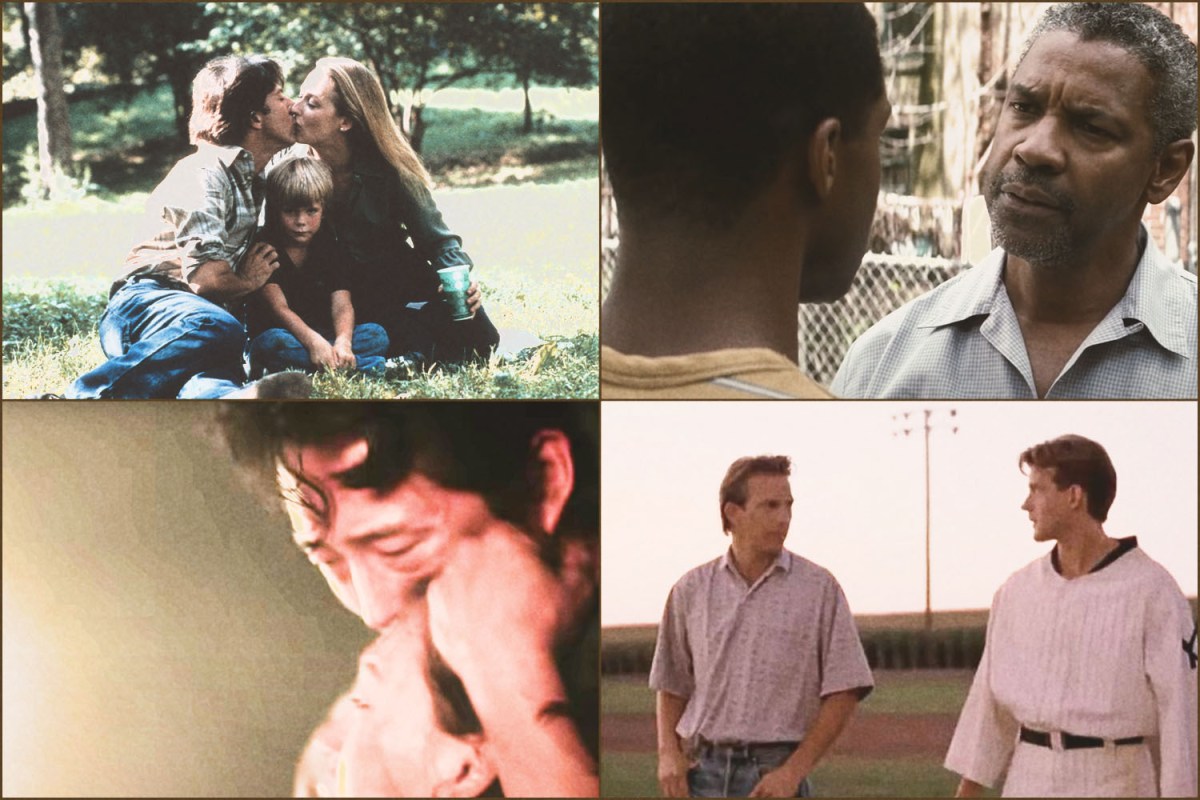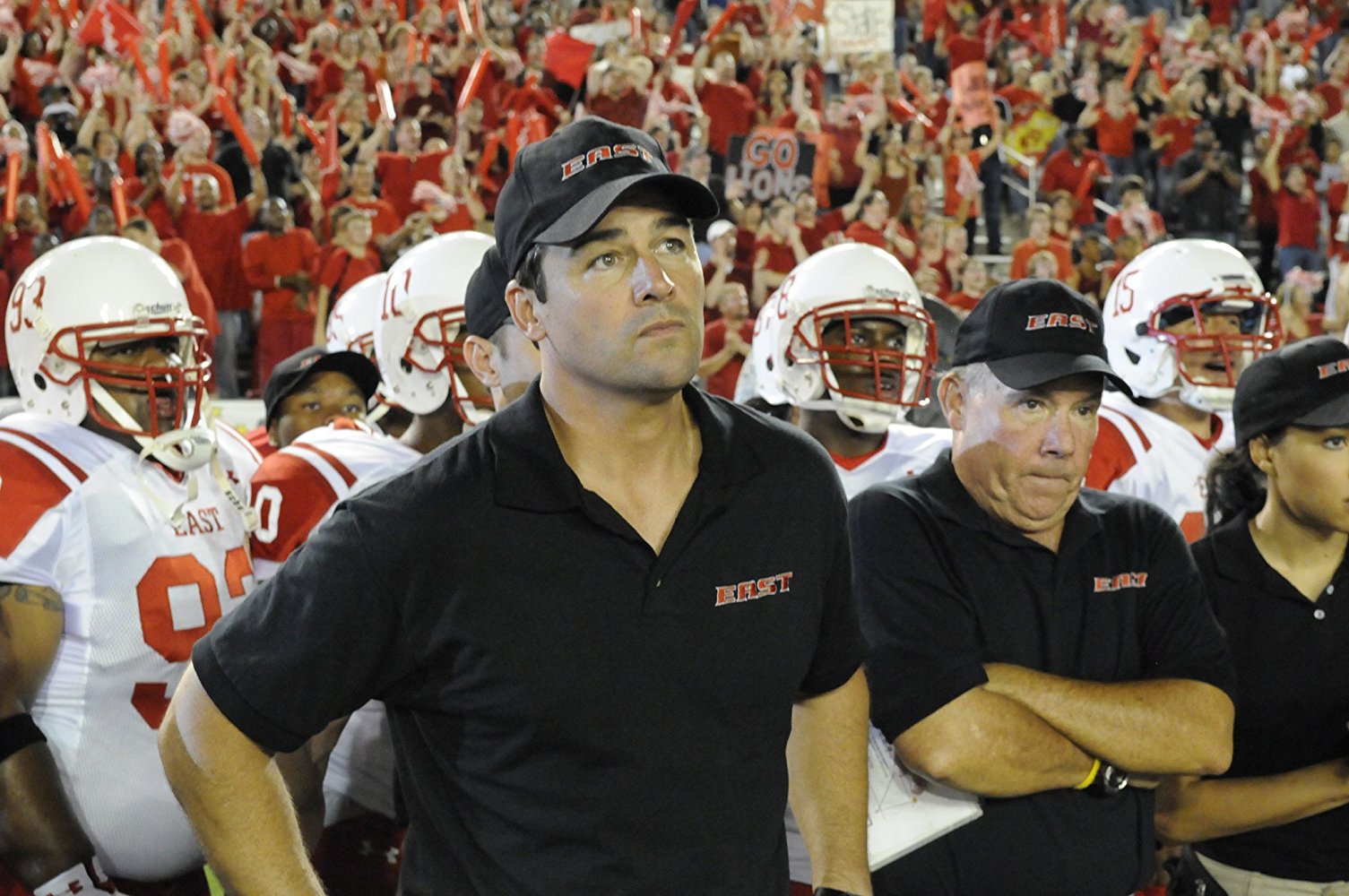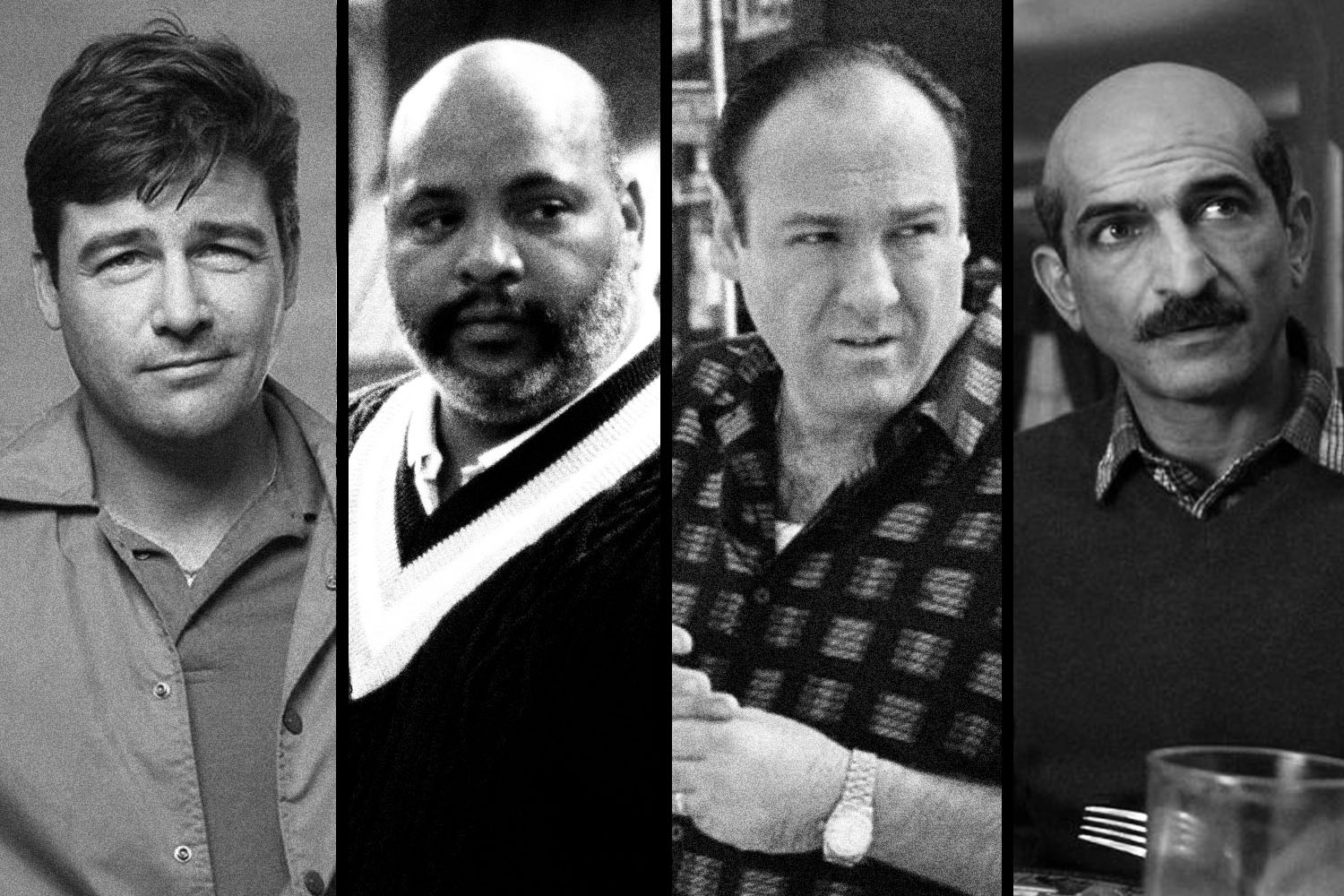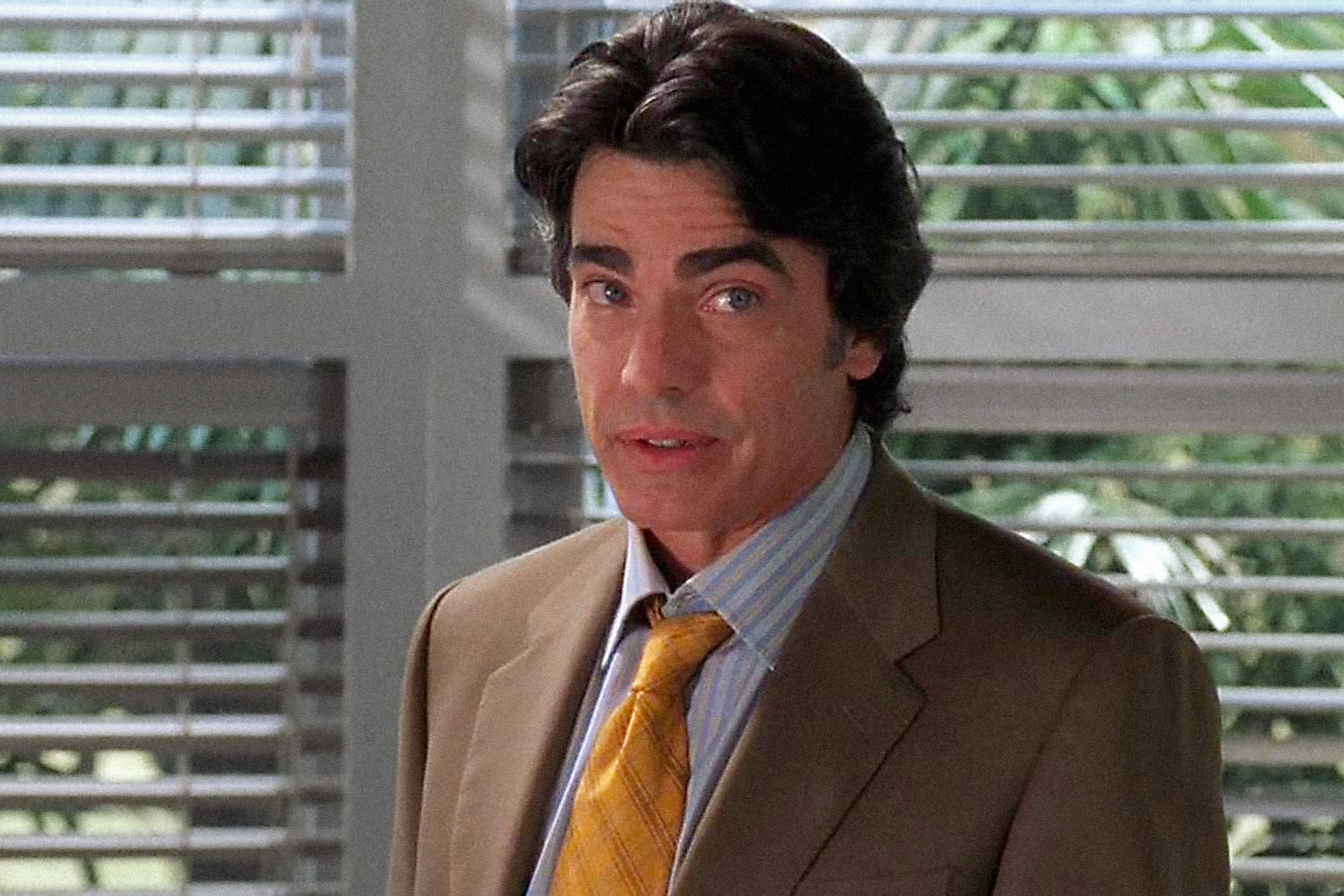For as long as people have been making them, there have been countless movies and TV shows centered around fathers and sons. More often than not, the paternal relationships depicted are complicated, fraught or downright abusive. Part of that might be for added dramatic effect, of course, but it also likely has something to do with things like generational trauma and toxic masculinity. Too often, boys are intimidated by their fathers, until they go through puberty, outgrow them and maybe develop an Oedipus complex — at which point, the dads may start to grow quietly resentful of their kids. How are you supposed to boss someone around when they’re now big enough to kick your ass?
Of course, these are all awful, systemic problems that need to be addressed sooner rather than later if society stands any chance at achieving some sort of healthy masculinity. But these complicated, problematic relationships do, admittedly, make for fascinating films. Some have heartwarming, happy endings, while others are devastating looks at the negative impact that a bad male role model can have on a boy’s life. They’re all excellent movies, however; we’ve rounded up the best below. Whether you’re looking to celebrate a loving bond, remind yourself that at least your dad wasn’t that bad or simply have a good cry while you reminisce about having a catch with your old man, you’ll find something to enjoy.
Field of Dreams (1989)
If we’re going to round up the best father-son movies of all time, we obviously have to start with this classic, which has been making dads across America — even the most stoic, emotionally repressed ones — weep for three decades now. Field of Dreams is of course, on its surface, a movie about baseball and one man’s quest to turn his Iowa cornfields into some sort of magical purgatory where Shoeless Joe Jackson and the other long-dead members of the 1919 “Black Sox” can show up and play, but it’s really about regret and redemption — two things just about anyone can relate to, especially our protagonist Ray Kinsella (Kevin Costner). Eventually we learn he’s tortured by the fact that he didn’t have a chance to mend his fractured relationship with his baseball-loving father before the elder Kinsella passed away. If you’re not reduced to a puddle of tears when Ray plays catch with the ghost of his estranged dad during the movie’s emotional climax, you might want to check your pulse.
Beginners (2010)
This semi-autobiographical film from director Mike Mills was inspired by his father, who came out as gay at the age of 75 following the death of his wife (Mills’ mother) before ultimately passing away himself just five years later. Beginners sees Oliver (Ewan McGregor) and his dad Hal growing closer during those five years that Hal lived as an openly gay man before his death. (It turns out it’s a lot easier to love other people when you love and accept yourself enough to live your truth.) Plummer in particular is excellent as the late bloomer Hal; his touching performance earned him the Oscar for Best Supporting Actor at the age of 82, making him the oldest person to win an Academy Award for acting (until 83-year-old Anthony Hopkins won one in 2021).
Kramer vs. Kramer (1979)
Dustin Hoffman’s problematic behind-the-scenes antics during the making of Kramer vs. Kramer have tainted its legacy. (His costar Meryl Streep claims that Hoffman groped her breast, hurled insults at her on set and improvised two scenes in which he acts out violently towards her — once breaking a wine glass near her head and once slapping her — without asking permission or giving her any advance warning.) But in spite of all the gross off-camera behavior, the movie itself holds up. Hoffman plays Ted, a workaholic dad who’s forced to actually start parenting his son (gasp!) after his wife leaves and divorces him, making him a single father at a time when such a thing was still a rarity. (Naturally, Ted and his son Billy eventually bond during the brutal ensuing custody battle.) The movie struck a chord with audiences, becoming the highest-grossing film of 1979 and earning Oscars for both Streep and Hoffman along with that year’s Best Picture award and even a Best Supporting Actor nomination for eight-year-old Justin Henry, who played Billy, making him the youngest Oscar nominee in history.
A River Runs Through It (1992)
Robert Redford’s adaptation of Norman Maclean’s semi-autobiographical novella is ultimately a tale of unconditional love, acceptance and a father’s inability to put a stop to his son’s self-destructive behavior. It tells the story of Norman, his rebellious brother Paul (Brad Pitt), who develops addictions to booze and gambling, and their father John, a minister who also happens to love fly-fishing. Ultimately, John and Norman are unable to save Paul from himself, and John delivers a moving sermon towards the end explaining how ultimately, all a father can do is love his kid no matter what.
Fences (2016)
Denzel Washington directed and starred in this film adaptation of August Wilson’s Pulitzer Prize-winning play about institutional racism, generational trauma and of course, the literal and metaphorical fences we erect to either contain people or keep them out of our lives. This is most glaring with the story’s central tension between Troy (Washington), a former Negro Leagues baseball player, and his son Cory, who dreams of a career as a football player but eventually winds up taking a bat to his toxic father instead.
The Royal Tenenbaums (2001)
Royal Tenenbaum may not have actually “died tragically rescuing his family from the wreckage of a destroyed sinking battleship,” as his epitaph in this Wes Anderson classic reads, but he does spend a good portion of the movie faking a terminal illness in order to force himself back into the lives of his estranged family and slowly but surely fall back into their good graces. Naturally, hijinks ensue, but to this day, The Royal Tenenbaums stands as one of Anderson’s most emotionally resonant films — especially the scenes between Royal (Gene Hackman) and his son Chas (Ben Stiller), who has grown overprotective of his own sons after their mother’s untimely death.
The Pursuit of Happyness (2006)
Will Smith may still be in time-out after slapping Chris Rock and generally being a patronizing asshole at the Oscars a few months ago, but no roundup of father/son movies would be complete without this one, thanks largely to the chemistry between the real-life father/son duo that starred in it. Years before he would win his controversial Oscar for playing Richard Williams, father of Venus and Serena Williams, Smith earned a Best Actor nomination for his portrayal of another dad — Chris Gardner, a salesman struggling with homelessness while looking after his young son (played by an eight-year-old Jaden Smith).
Nebraska (2013)
One of life’s most bittersweet inevitabilities is that as we age, so do our parents, and eventually a role reversal takes place where the child must care for and look after a parent who has become elderly and incapable of handling things on their own. That’s the general conceit of Alexander Payne’s excellent Nebraska, which stars Will Forte (in his most dramatic and understated role to date) as a dutiful son who humors his dad (Bruce Dern), who has been scammed into thinking he’s won the lottery, by driving him across the country to claim his alleged prize money. It’s a touching, darkly funny road movie about the great lengths — metaphorical and literal — we’ll go to for family.
Big Fish (2003)
“Man repairs his strained relationship with his dying/sick/elderly father” is the basic synopsis of so many father/son films, but this Tim Burton fantasy movie offers a unique twist on the concept, bringing to life the tall tales told by one Edward Bloom (portrayed as a young man by Ewan McGregor) to his son Will (Billy Crudup). As the series of vignettes unfold, we root for Will to finally be able to accept his father’s tendency to embellish the truth, and along the way we’re taken in by his compelling stories — which are full of giants, witches, werewolves and circus performers — ourselves.
Beautiful Boy (2018)
Based on a pair of memoirs by New York Times writer David Sheff and his son Nic Sheff, Beautiful Boy tells the real-life story of Nic’s battle with addiction to methamphetamines and David’s attempts to help his son get clean. As you might imagine given the subject matter, it’s a harrowing depiction of substance abuse and the toll it can take on a family. David (Steve Carell) struggles with how best to help his son, alternating between offering his support and hitting him with some tough love in the hopes that hitting rock bottom on his own will finally convince him to get the treatment he needs. It’s bleak at times, but fortunately this one’s got a happy ending; the film ends with the revelation that Nic has been sober for eight years.
Boyhood (2014)
Richard Linklater’s groundbreaking coming-of-age tale, filmed in real time over the course of 12 years, is undoubtedly about our protagonist Mason’s relationship to both of his parents and the way their divorce shaped his adolescence. But it’s the way his father (played by Ethan Hawke) flits in and out of his life while his mother (Patricia Arquette) exposes him to a series of boyfriends who serve as replacement male authority figures in his life — including an abusive stepdad named Bill. It’s a familiar concept, but because of the unconventional way it was filmed, it’s absolutely unlike anything else you’ve seen.
Minari (2020)
Director Lee Isaac Chung pulled from his own childhood for Minari, which follows a South Korean family of immigrants in rural Arkansas as they chase the American Dream on their farm. It’s essentially a love letter to his enterprising father (played by Steven Yeun, who earned an Oscar nod for the role), and it was so personal to Chung that he didn’t even tell his parents about it until he was almost done making it. “I didn’t even tell them that I was making this film until I was in the editing room with it after I had shot it, because I was just so scared about what they would say,” he told the Los Angeles Times.
The Godfather (1972)
All mafia movies are, to some extent, about the paternal relationships between higher-ranking mob bosses and the younger men who do their bidding. But the ultimate gangster movie is also quite literally about a father and his sons as they jockey for his affection and ultimately take over the family business when he ultimately dies of a heart attack. Sonny and Fredo are equally compelling characters, but ultimately it’s the youngest son, Michael Corleone, whose journey from family outsider to heartless mafia don serves as the heart of the film.
There Will Be Blood (2007)
“I drink your milkshake” still stands as the most memorable bit of dialogue from Paul Thomas Anderson’s There Will Be Blood, but “I’ve abandoned my child! I’ve abandoned my boy!” has to be up there as well. The relationship between oil tycoon Daniel Plainview (Daniel Day-Lewis) and his adopted son/business partner H.W., whom he uses mostly as a prop to impress potential investors, is central to the movie; the further he drifts away from H.W., the more irredeemable Daniel becomes, descending into madness and looking for vengeance.
The Squid and the Whale (2005)
Noah Baumbach’s semi-autobiographical tale of about a literary couple in 1980s Brooklyn going through a messy divorce offers a hard look at the effects the split has on their two sons, played by Jesse Eisenberg and Owen Kline. And while on its surface, it’s about a shitty dad, it’s also about a shitty son in a lot of ways. While the parents, played by Jeff Daniels and Laura Linney, are flawed to say the least, the film doesn’t let the kids — especially Eisenberg’s character, who is a stand-in for Baumbach himself — off the hook either. “I actually got more interested in kind of taking myself to task and being more critical of how I behaved back then,” he told NPR that year.
This article appeared in an InsideHook newsletter. Sign up for free to get more on travel, wellness, style, drinking, and culture.
























